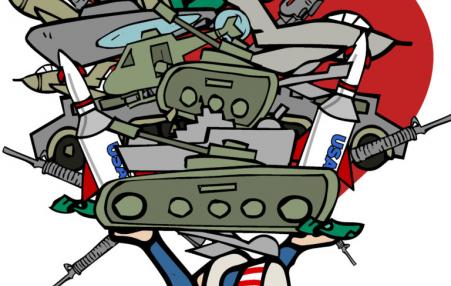Pentagon Contractors in Afghanistan Pocketed $108 Billion Over 20 Years
Common Dreams
 The President's budget is a reflection of the administration's priorities. And this administration and their GOP co-horts in Congress want to slash over a trillion dollars with cuts to programs for some of the nation's most vulnerable. A massive increase in the military budget and war preparations comes at the expense of slashing all kinds of social programs.
The President's budget is a reflection of the administration's priorities. And this administration and their GOP co-horts in Congress want to slash over a trillion dollars with cuts to programs for some of the nation's most vulnerable. A massive increase in the military budget and war preparations comes at the expense of slashing all kinds of social programs.
 During the Cold War, the supposed threat of Communism was the justification for super-sized budgets and a continuous stream of wars and interventions-some overt, others covert or proxy-none of which had anything to do with defending the United States-and none of which ended in victory. These were sold to the American people as being fought to "defend freedom" or "support democracy." After the Cold War ended it became more difficult to justify such a massive military.
During the Cold War, the supposed threat of Communism was the justification for super-sized budgets and a continuous stream of wars and interventions-some overt, others covert or proxy-none of which had anything to do with defending the United States-and none of which ended in victory. These were sold to the American people as being fought to "defend freedom" or "support democracy." After the Cold War ended it became more difficult to justify such a massive military.
Spread the word